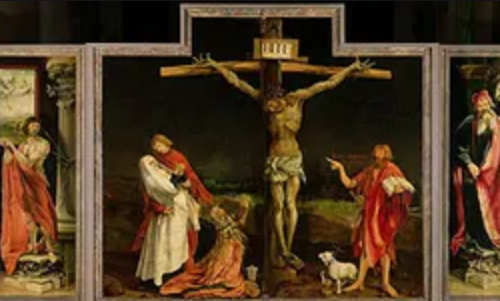This is a guest post by James Snell
Review: Nothing is True and Everything is Possible by Peter Pomerantsev
For a generation such as mine, which attained political consciousness after the fall of the Berlin Wall and the collapse of the Soviet system in the last century, it can sometimes seem strange that the iron fist of dictatorship persists in this era. New technologies have made speech, dissent and discourse practical possibilities for many in nations previously brought low by tyranny. Satire and dark humour thrive in the shadow of oppression and even horror – much can be made funny even when contemplating the rise and expansion of Islamic State, for example – and dictators are, or so we believe, ever fearful of the destructive power of a joke.
Occasionally, however, we must update our perceptions. Russia has seen the creation of a postmodern dictatorship, one which uses the tricks and pitfalls of new media – the unpleasantness, the clamour, the tendency among many to eschew authority in pursuit of the “real story” – to advance its stranglehold at home and to proliferate its propaganda abroad.
One of the mediums where this strategy has been most successful is television. Spread far and wide geographically, many Russians are entirely dependent on television for their news and entertainment. But television also serves a dual purpose. It does entertain, certainly; unlike the greyness and inanity of Soviet media, the new rulers of Russia have cannily determined that television can be either benign or extreme, but it must never be boring. But television is also used for a more sinister form of population control, in which the postmodern ideas of the avant-garde are appropriated to stifle dissent and crush freedom.
It is the centrality of television’s place in the new Russian order which makes it worth dissecting. In Peter Pomerantsev, an extensively experienced television producer and son of exiled Soviet dissidents, this industry has found its most perceptive and prescient chronicler.
Pomerantsev writes well – beautifully, in fact; his prose is almost irritatingly accomplished. His narrative comprises a patchwork of involving, vividly-drawn vignettes, all of which manage both to zero in on the individual at the heart of the story and to illuminate and illustrate wider truths about Russian society. This book testifies powerfully about the fate of a nation which remains cynical and yet somehow optimistic, diminished yet vibrant, under the control of a man – the postmodern dictator himself – who is hardly mentioned by name but whose presence is constantly felt.
Perhaps the most tragic of the lot are the young, inexperienced journalists who go to work for RT (formerly Russia Today) the Russian state’s global television network. They leave the finest universities with the most glittering degrees, but end up agents of the propaganda arm of an expansionist oligarchy. It is their lot to propagate the ‘Russian perspective’ to a world audience and, imbued with the moral relativism this system demands, to diminish and denigrate the status and actions of liberal democracy.
Other portraits are similarly enlightening and effective. The postmodern media landscape, in which everything is simply a simulacrum of something else, is largely the creation of one man – Vladislav Surkov. He, formerly an intelligent, witty child whose schoolboy essays on literature ‘were read aloud by teachers in the staffroom’, orchestrates the organised chaos of Russian public life.
Surkov is a man whose influence creates and destroys entire political movements, rendering ideology and doctrine ridiculous in the process, all for the ultimate benefit of the Kremlin. ‘He claps once and a new political party appears. He claps again and creates Nashi, the Russian equivalent of the Hitler Youth, who are trained for street battles with potential pro-democracy supporters and who burn books by unpatriotic writers on Red Square.’ The image here is apt; Surkov portrayed as the conjuror, as if by magic undermining the very fabric of democracy in Russia.
Here, Pomerantsev’s assessments are sage and his perceptions sharp. He resists the urge of many writers who profile Surkov to slip into over-admiring hagiography. After all, the political situation that has been created may be impressive in construction, but it is still an anti-democratic travesty in practice. Over-eager admirers of Surkov often forget this, but Pomerantsev, with his insider’s perspective on the making of Russian television, deftly describes how this system crushes opposition even while superficially strengthening it.
The conflict in Ukraine bears many hallmarks of Surkov’s work. He even published a short story (under a transparent pseudonym, of course) about the possibilities of what he termed ‘non-linear war’. In this constructed and stage-managed media landscape, Ukrainian officials and MPs are derided as fascists; the Russian soldiers fighting and dying in Ukraine are actually freedom fighters, defending the creation of ‘Novorossiya’ – or they are not there at all; and, perhaps worst of all, the whole conflict was actually the result of Western expansion, of US imperialism.
For the critiques of this transparent media manipulation alone, Pomerantsev’s book is a vital resource. And it is more than that; he creates a powerfully written, endlessly evocative and terribly recognisable description of the state of Russia today. For anyone watching the twists and turns of how Boris Nemtsov’s murder has been used by the Kremlin and its affiliates, the only epithet of any value is that which Pomerantsev takes for his title. In a world of such calculated disinformation, nothing is true, and everything is certainly possible.
You can follow James on Twitter here


